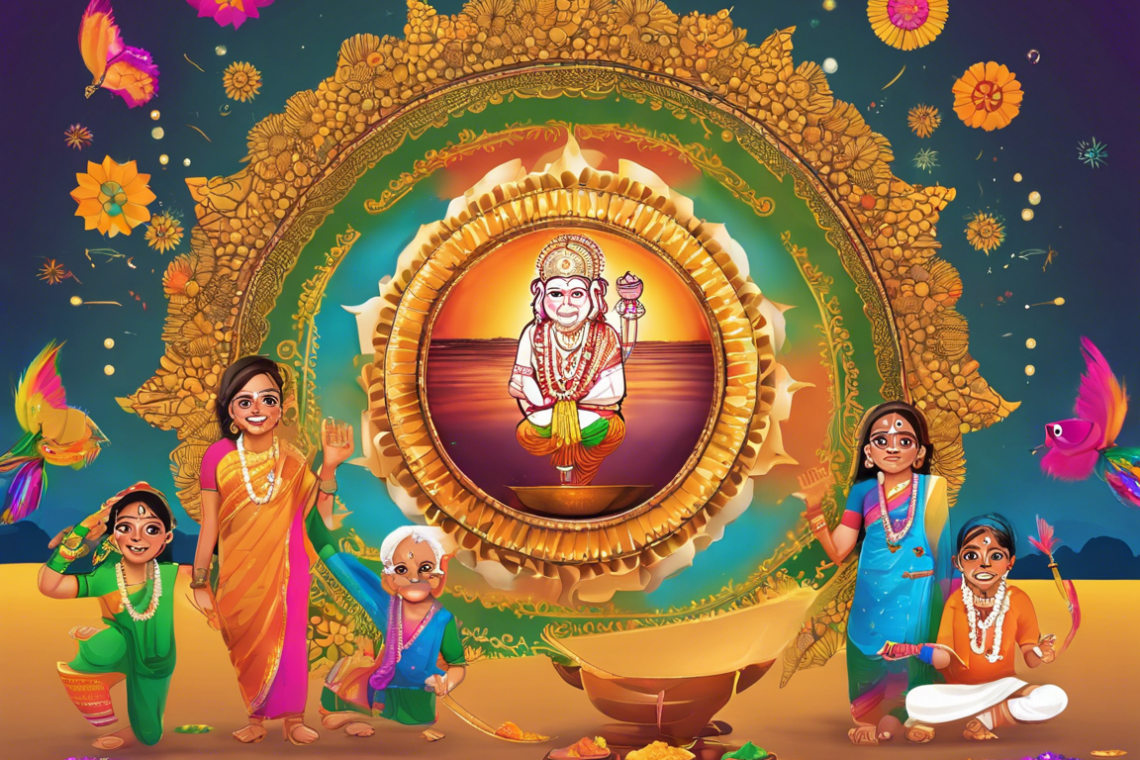
Introduction:
In the vibrant and colorful culture of Telugu people, Sankranti holds a significant place. Also known as Makara Sankranti, it is a major harvest festival celebrated with great enthusiasm in the southern state of Andhra Pradesh and Telangana. Falling in the month of January, Sankranti marks the transition of the Sun into the zodiac sign of Capricorn (Makara in Sanskrit), symbolizing the end of the winter solstice and the beginning of longer days.
Importance of Sankranti:
Sankranti is not just a festival but a cultural phenomenon that celebrates the arrival of spring and new beginnings. It is a time for families to come together, exchange gifts and sweets, and participate in traditional rituals and customs. The festival also holds agricultural significance as it marks the beginning of the harvesting season when farmers reap the fruits of their hard work and thank the gods for a bountiful harvest.
Sankranti 2024 Telugu Calendar Dates:
In 2024, Makara Sankranti falls on Saturday, January 15th. This auspicious day is celebrated with various rituals and activities that vary from region to region. In Telugu households, the festival starts with an oil massage followed by a holy dip in the river or a water body. People wear new clothes, fly kites, and prepare traditional delicacies like Pongal (a sweet dish made of rice and jaggery) to offer prayers to the Sun God.
Rituals and Traditions:
- Bhogi: The day before Sankranti is celebrated as Bhogi when people discard old belongings and welcome new things into their homes.
- Kanuma: On the third day, Kanuma is observed where prayers are offered to cattle for their role in agriculture.
- Mukkanuma: The fourth day is Mukkanuma, dedicated to feasting and showcasing the rich culinary heritage of Telugu cuisine.
Significance of Sankranti in Telugu Culture:
Sankranti is not just a festival but a reflection of the rich cultural heritage of Telugu people. It celebrates the spirit of community, gratitude towards nature, and the importance of family bonds. The festival also signifies the triumph of good over evil and the beginning of a new chapter in life.
FAQs (Frequently Asked Questions):
- What is the significance of flying kites during Sankranti?
-
Flying kites during Sankranti symbolizes letting go of past regrets and embracing new opportunities.
-
Why is Pongal considered a special dish during Sankranti?
-
Pongal is a symbol of prosperity and abundance, and its preparation during Sankranti is believed to bring good luck.
-
Are there any specific colors or traditional attire worn during Sankranti?
-
Women typically wear sarees in bright colors like yellow, green, or red, while men opt for traditional dhotis or kurta pajamas.
-
What are some traditional games played during Sankranti?
-
Games like Rangoli competitions, cockfights, and bullock cart races are commonly organized during Sankranti.
-
Is there a specific way Sankranti is celebrated in urban areas compared to rural regions?
- While rural areas focus more on agricultural rituals, urban celebrations of Sankranti often involve cultural events, kite flying competitions, and local fairs.
Conclusion:
Sankranti is not just a festival; it is a celebration of life, nature, and the rich cultural heritage of the Telugu community. As families come together to mark the beginning of a new season, the spirit of Sankranti reminds us of the importance of traditions, gratitude, and togetherness. So, let us embrace the festive spirit of Sankranti and usher in a year filled with joy, prosperity, and new beginnings.
